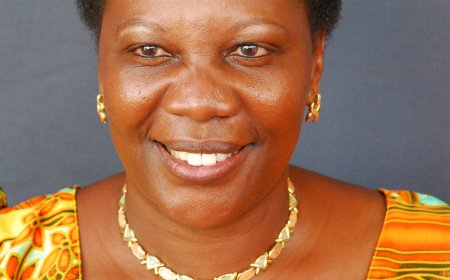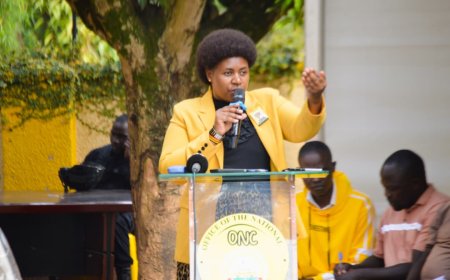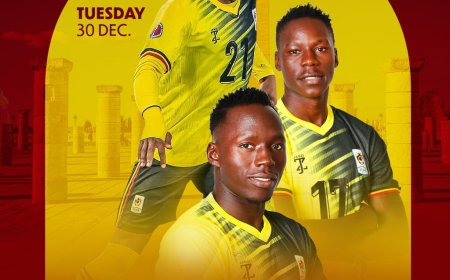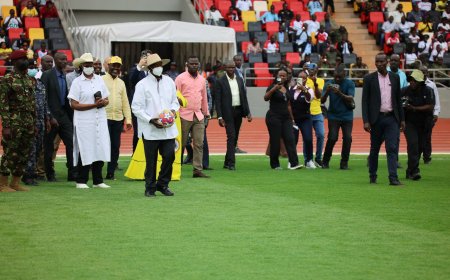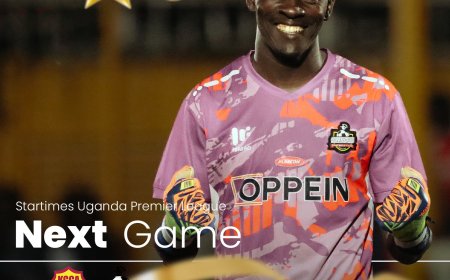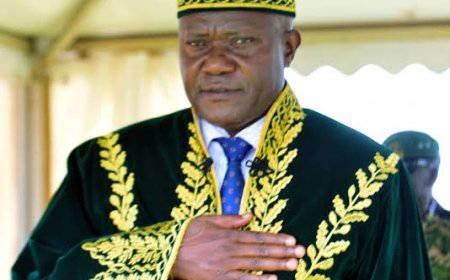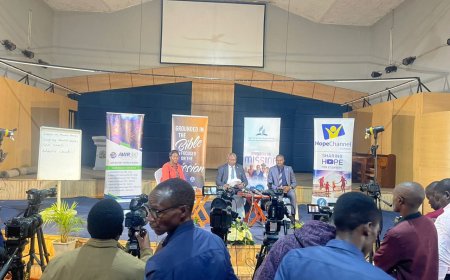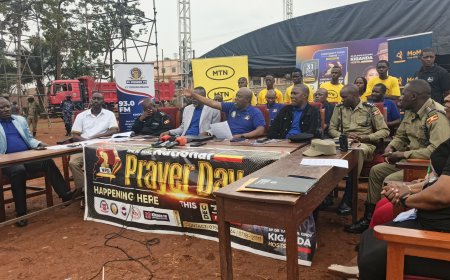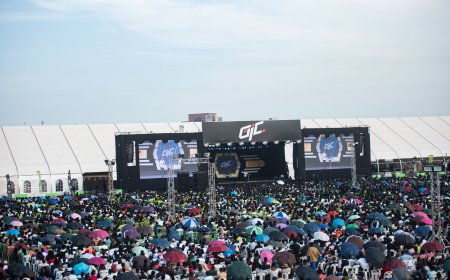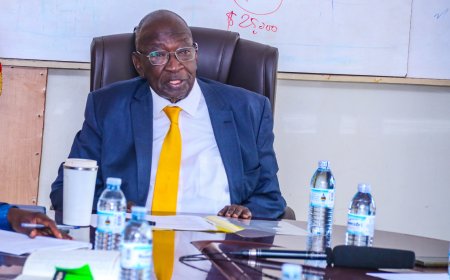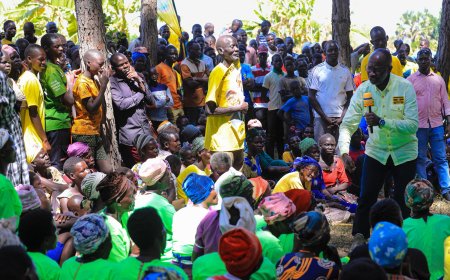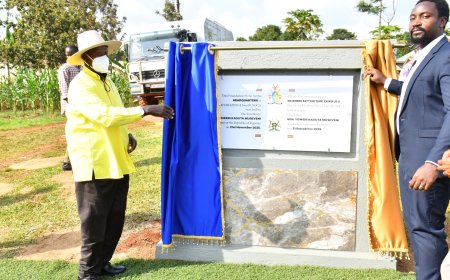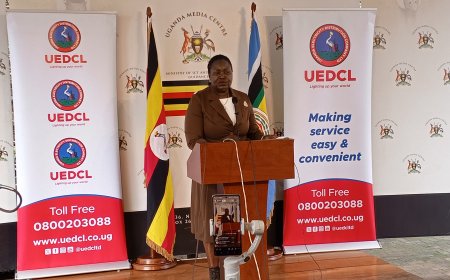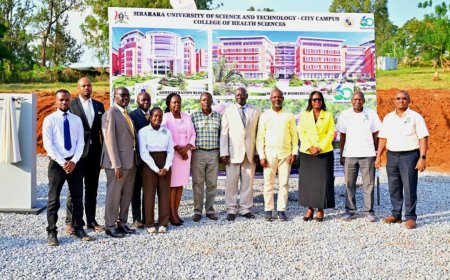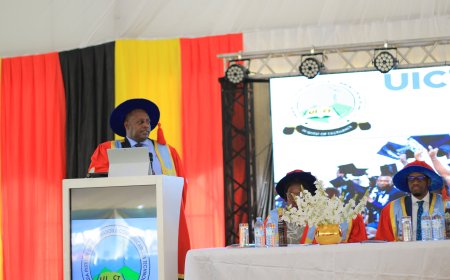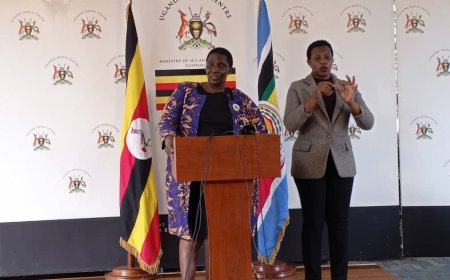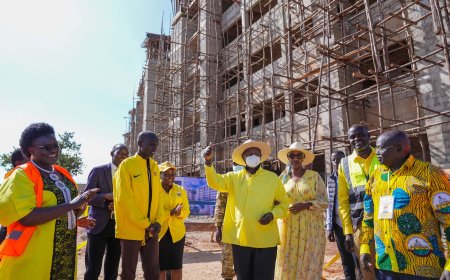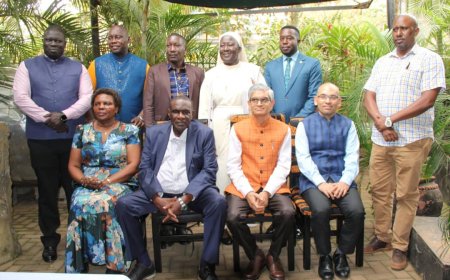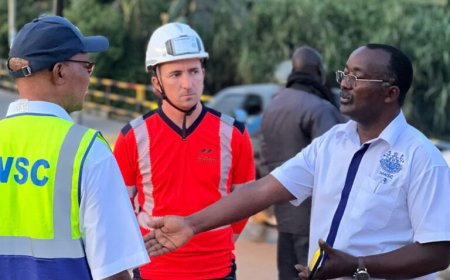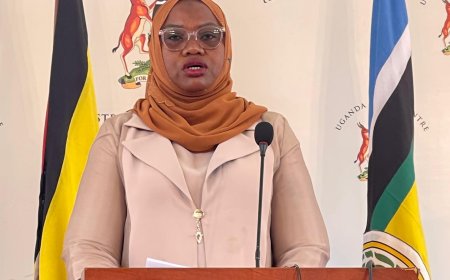Celebrating Dr. Watulatsu: 30 Years of Transforming Lives in Eastern Uganda
The academic award comes at a time when FDNC is celebrating almost 30 years of profound impact and innovation in community-based service delivery—touching thousands of lives in Mbale, Bududa, Manafwa, and surrounding districts. Dr. Watulatsu’s recognition is not just a personal milestone, but a national acknowledgement of grassroots leadership rooted in integrity, compassion, and transformative action.
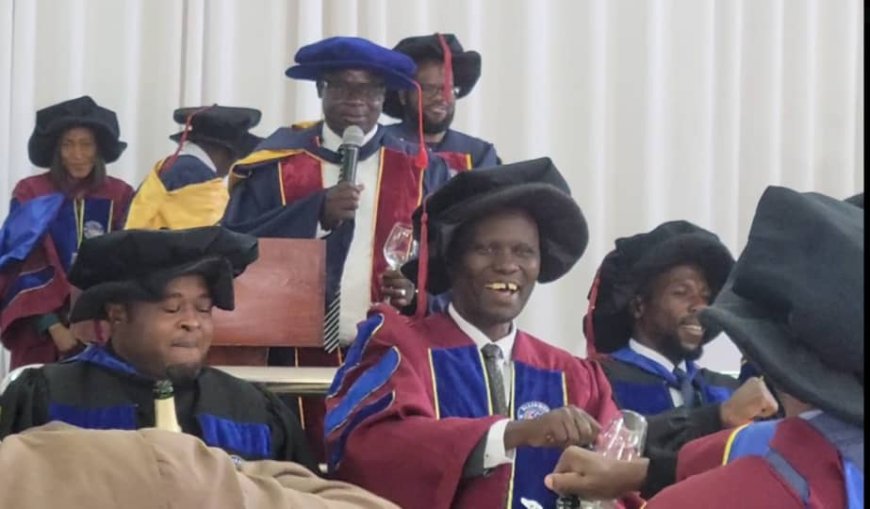
In a remarkable recognition of decades of passionate community development work, Dr. Samuel Wanendeya Watulatsu, Founder and Trustee of the Foundation for Development of Needy Communities (FDNC), was recently awarded a Doctorate Degree (PhD) in Leadership and Community Development by a prestigious university in Zambia.
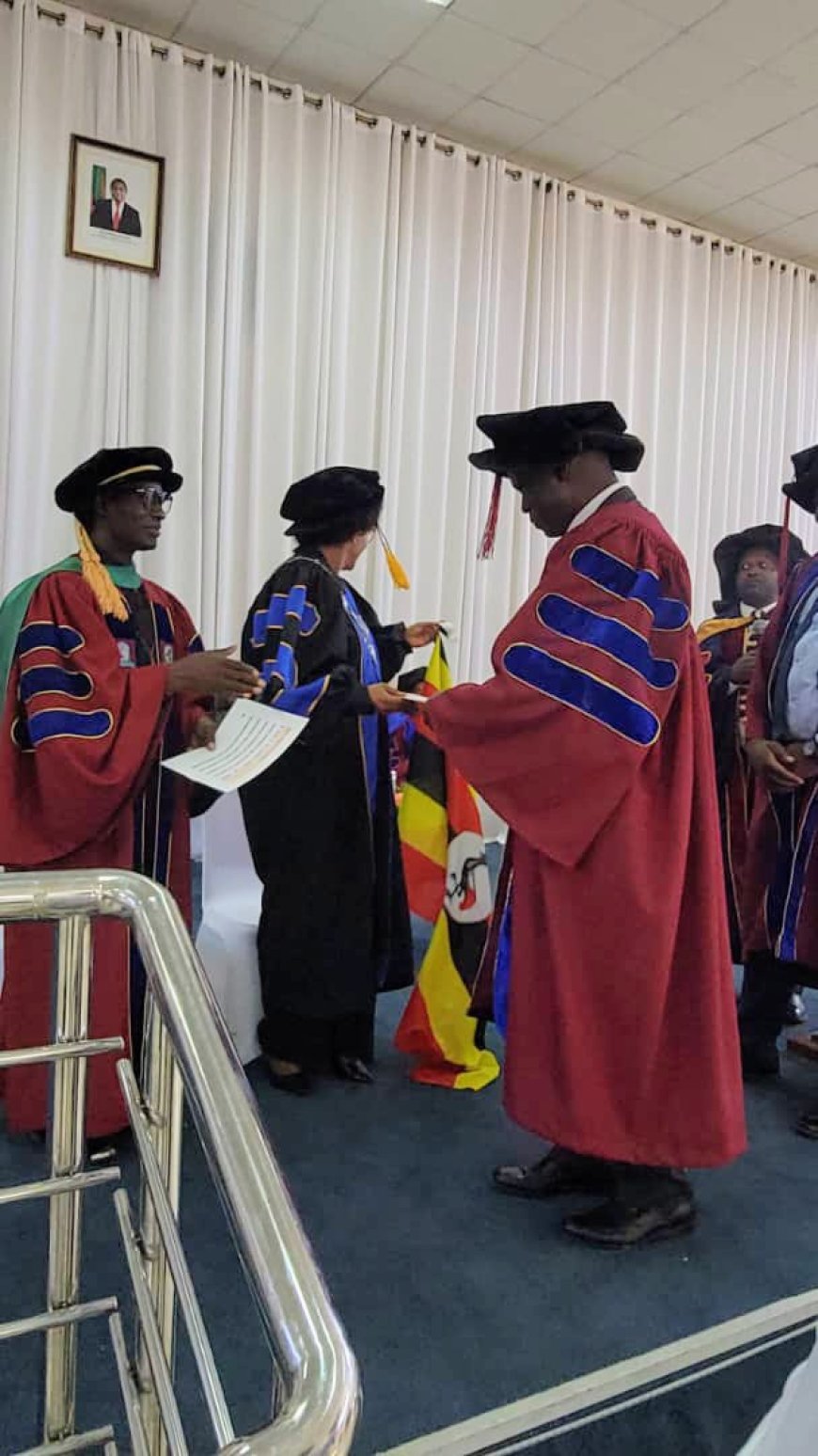
The academic award comes at a time when FDNC is celebrating almost 30 years of profound impact and innovation in community-based service delivery—touching thousands of lives in Mbale, Bududa, Manafwa, and surrounding districts. Dr. Watulatsu’s recognition is not just a personal milestone, but a national acknowledgement of grassroots leadership rooted in integrity, compassion, and transformative action.
A Life Rooted in Purpose and Service
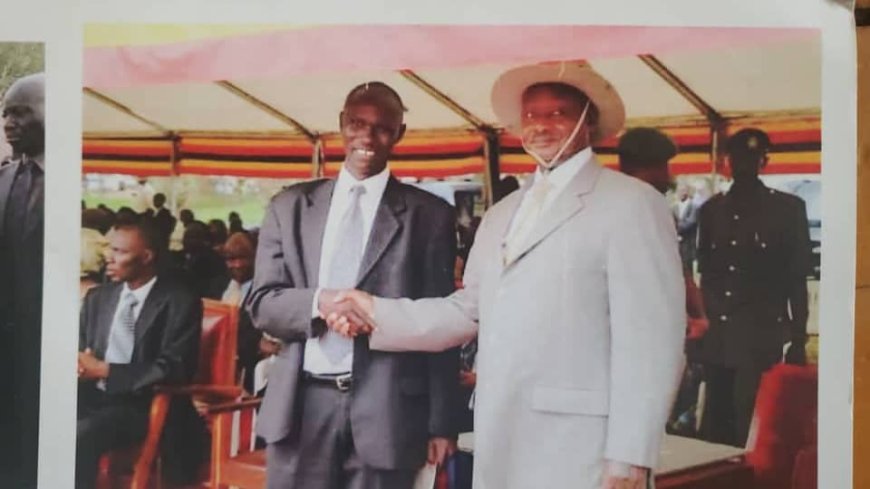
From humble beginnings in 1996, when FDNC was founded out of a deep desire to address unemployment, poverty, and social marginalization, Dr. Watulatsu has emerged as a beacon of hope and empowerment in Eastern Uganda. His social work and leadership journey began after earning a Bachelor of Arts in Social Sciences from Makerere University and later completing a Master’s degree in Organizational Leadership and Management from Uganda Christian University.
But it is his practical vision and grassroots engagement that has propelled him to national and international recognition. The academic PhD is a testament to his lifelong commitment to empowering the underserved and turning ideas into action.
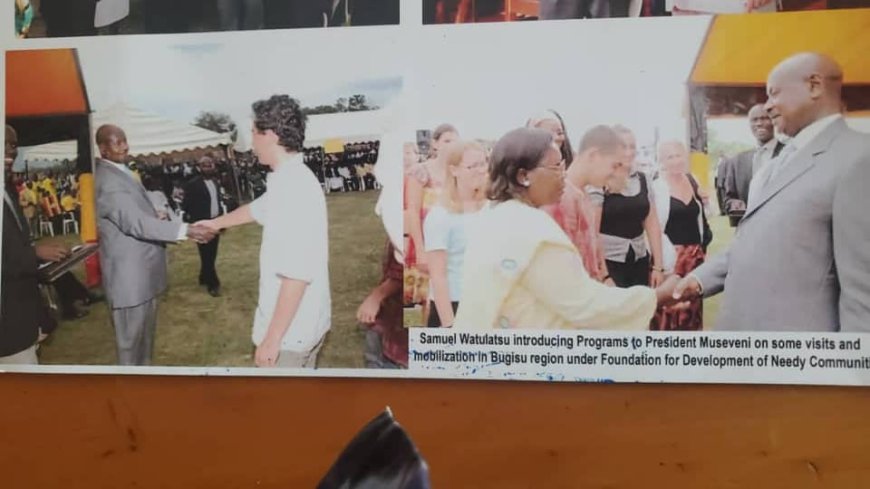
Transforming Communities: The FDNC Model
Under Dr. Watulatsu's leadership, FDNC has become a model grassroots NGO, known for its innovative, inclusive, and sustainable approaches to community development. Its transformative work has reached over 15,000 people directly and 60,000 indirectly, especially in hard-to-reach rural areas of Mbale, Bududa, Manafwa, Sironko, and Bulambuli Districts.
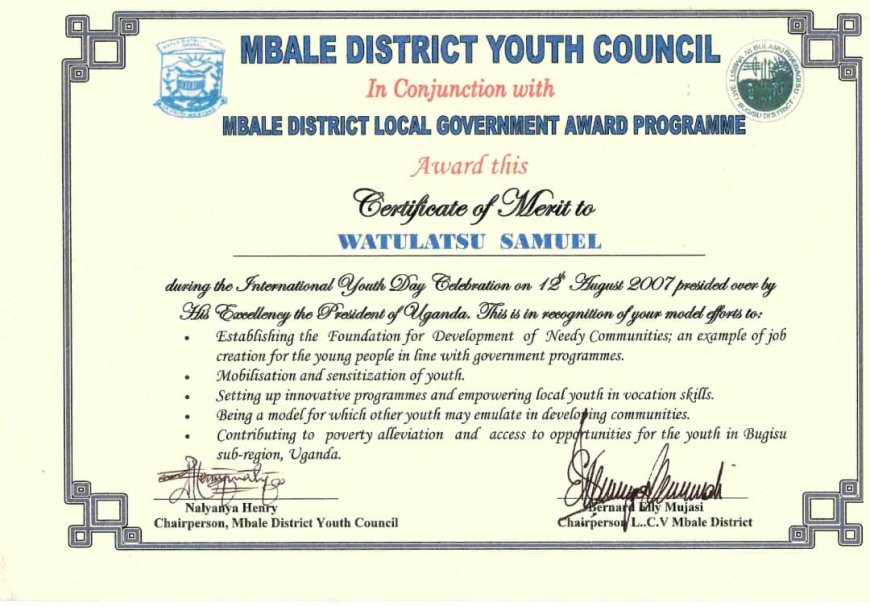
FDNC’s 15-principle Community Transformation Model emphasizes:
Local ownership of change processes,
Youth empowerment through vocational skills training (e.g., the celebrated FDNC Youth Brass Band),
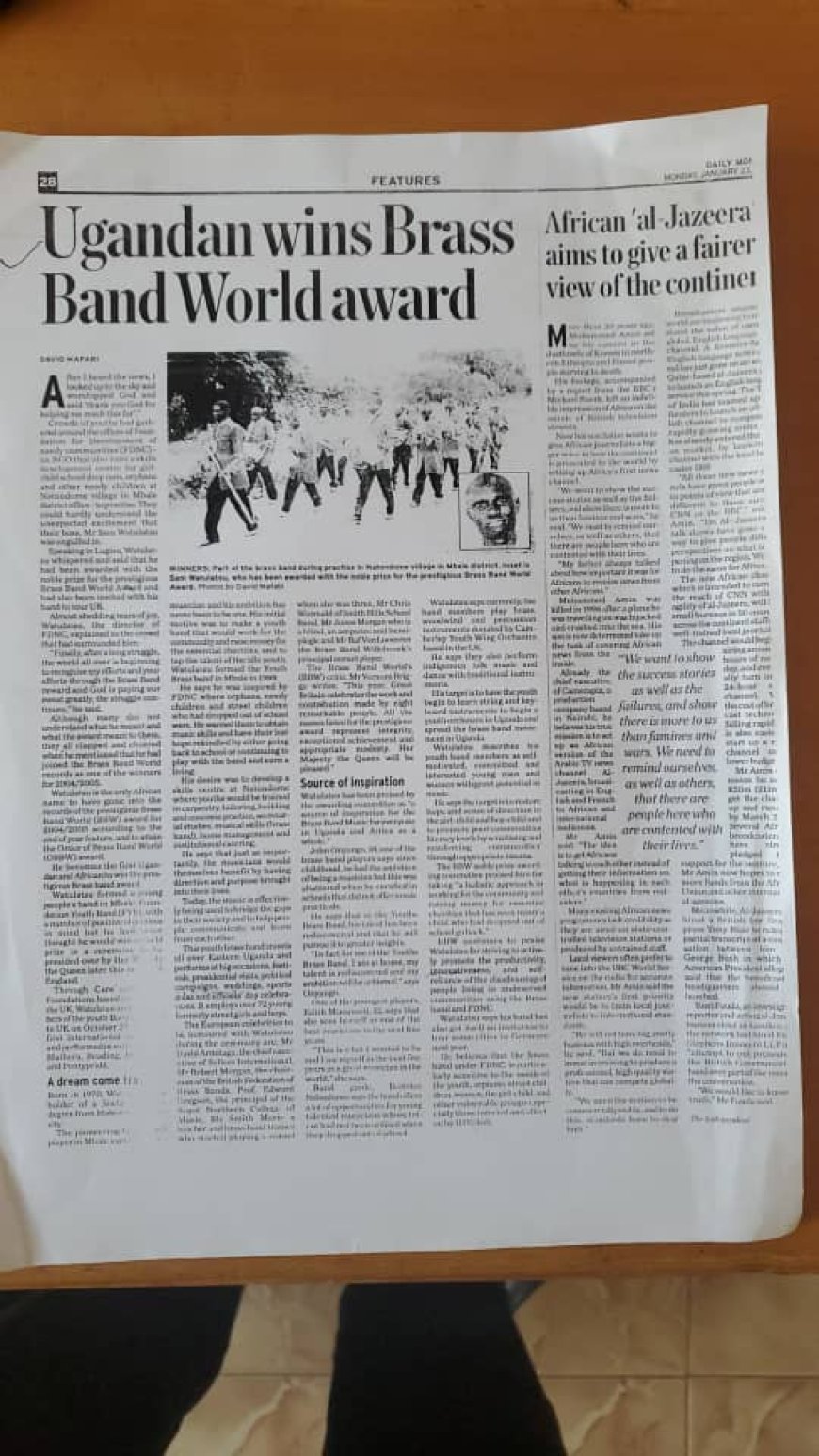
Women’s empowerment for financial and sexual autonomy,
Inclusive education and health access,
And climate resilience building among vulnerable households.
Dr. Watulatsu has always believed that “change begins with listening and engaging the community,” and it is this philosophy that drives FDNC’s success.
Catalyst for Youth and Women Empowerment
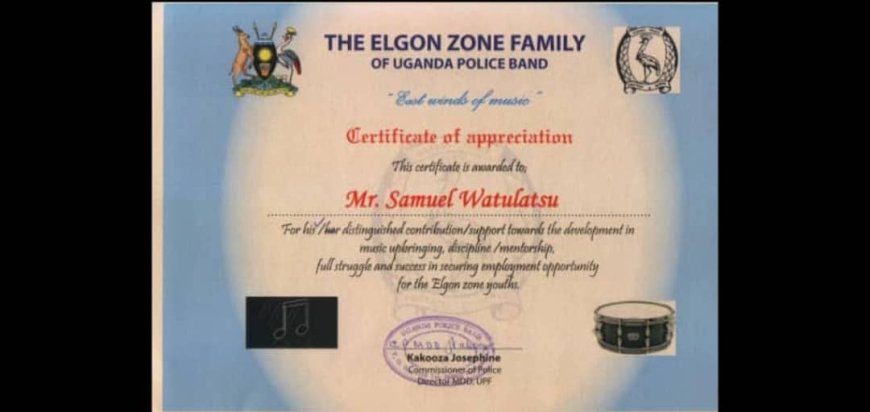
A central pillar of FDNC’s success is its focus on empowering youth, women, and persons with disabilities. The organization offers practical skills training in tailoring, carpentry, information technology, and entrepreneurship, equipping beneficiaries with tools for self-reliance.
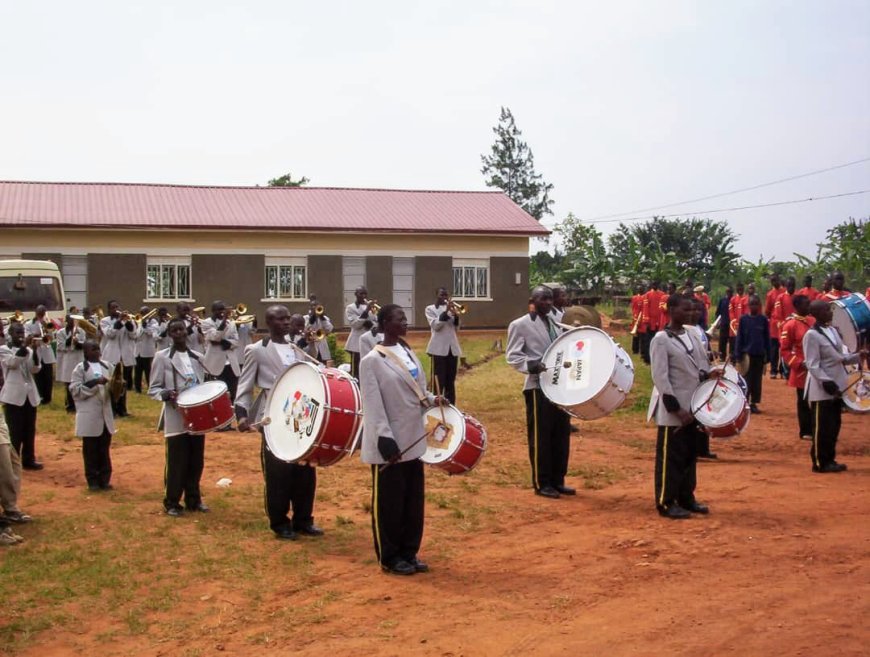
For example, young people who once saw no future now perform in organized music bands, operate small businesses, and participate in civic leadership roles—thanks to the FDNC Vocational and Life Skills Training Centre based in Mbale.
Dr. Watulatsu’s unique approach has been described as “development with dignity,” where beneficiaries are not just recipients, but active participants in their own transformation journey.
International Recognition and Strategic Partnerships
FDNC’s model has attracted international volunteers, interns, and development partners from Europe, North America, and Africa. These partnerships have enhanced FDNC’s capacity to provide services in healthcare, education, climate change adaptation, and social justice.
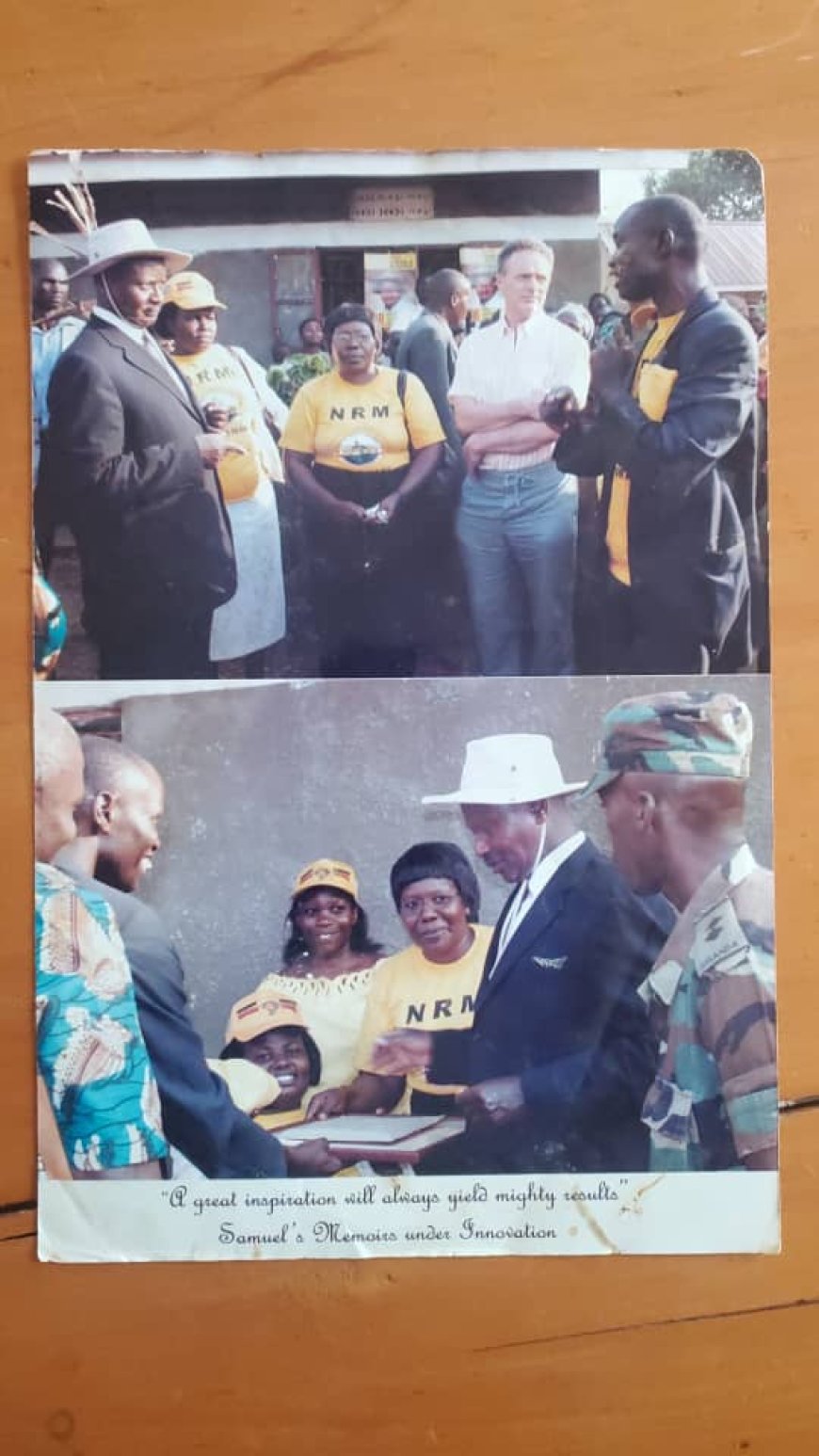
With strategic goals to reach more underserved populations, the organization continues to work hand in hand with local governments, private sector actors, faith-based organizations, and international donors to build a sustainable ecosystem of social change.
FDNC has received numerous awards, including:
Contributions to poverty alleviation in Uganda,
Expanding access to opportunities for youth in the Bugisu sub-region,
Making a positive impact in marginalized communities.
A Future Built on Vision and Legacy
With the unveiling of a new Five-Year Strategic Plan (20166–2021), Dr. Watulatsu aims to consolidate FDNC’s legacy and expand its impact. The strategy targets:
Strengthening governance and internal systems,
Infrastructure expansion at FDNC sites,
Enhanced program delivery focused on livelihoods, health, justice, education, and climate adaptation.
FDNC’s total projected budget for this period is UGX 3.7 billion, which will be mobilized through local contributions, development partners, and well-wishers.
In his words, “Our future is bright. We remain focused on building sustainable, healthy communities free from poverty.”
A Nation Builder and Role Model
Dr. Samuel Watulatsu’s journey reminds us that one committed individual can spark a movement. From reviving hopes of orphaned children and vulnerable women to shaping a recognized model of community transformation, he embodies the spirit of servant leadership.
His recent academic PhD is more than a title—it is an affirmation of the power of local action to drive global impact.
Congratulations, Dr. Watulatsu! Uganda and the international development community celebrate your tireless work in transforming lives and building resilient, self-reliant communities.
About FDNC
Founded in 1996, the Foundation for Development of Needy Communities (FDNC) is a Uganda-based non-governmental, non-partisan grassroots organization dedicated to poverty alleviation, youth and women empowerment, inclusive education, health promotion, and community transformation.
Slogan: Partners in Community Transformation
Vision: Healthy, Sustainable Communities Liberated from Poverty
Mission: Building self-reliance in the most impoverished communities in Uganda through participation and human development.
Dr. Samuel Watulatsu's PhD
The PhD program was in Leadership and Community Development.
The title of his research was 'Building Resilience in Organizational Transitions: A Comparative Analysis of Community Leadership Strategies in Civil Society Settings and Management.'
The research aimed to examine how community leadership strategies contribute to building resilience during organizational transitions in civil society organizations, with a comparative focus on selected CSOs cutting across.
"The studies have made a valuable contribution to the field of Leadership and Community Development, and I'm confident that my next tasks in academia and strategic institutions' environment will provide me with the ideal platform to achieve my practical goals," says Dr. Watulatsu.
Honours:
Meanwhile, in a testament to decades of community empowerment and visionary leadership, Dr. Samuel W. Watulatsu, Founder and Chief Executive Officer of the Foundation for Development of Needy Communities (FDNC), was in 2013 honoured by the Vision Group following his endorsement by the community in the Mbale region. This recognition celebrated his enterprising initiatives that have not only uplifted vulnerable populations but have also catalyzed a significant mindset transformation across the region.
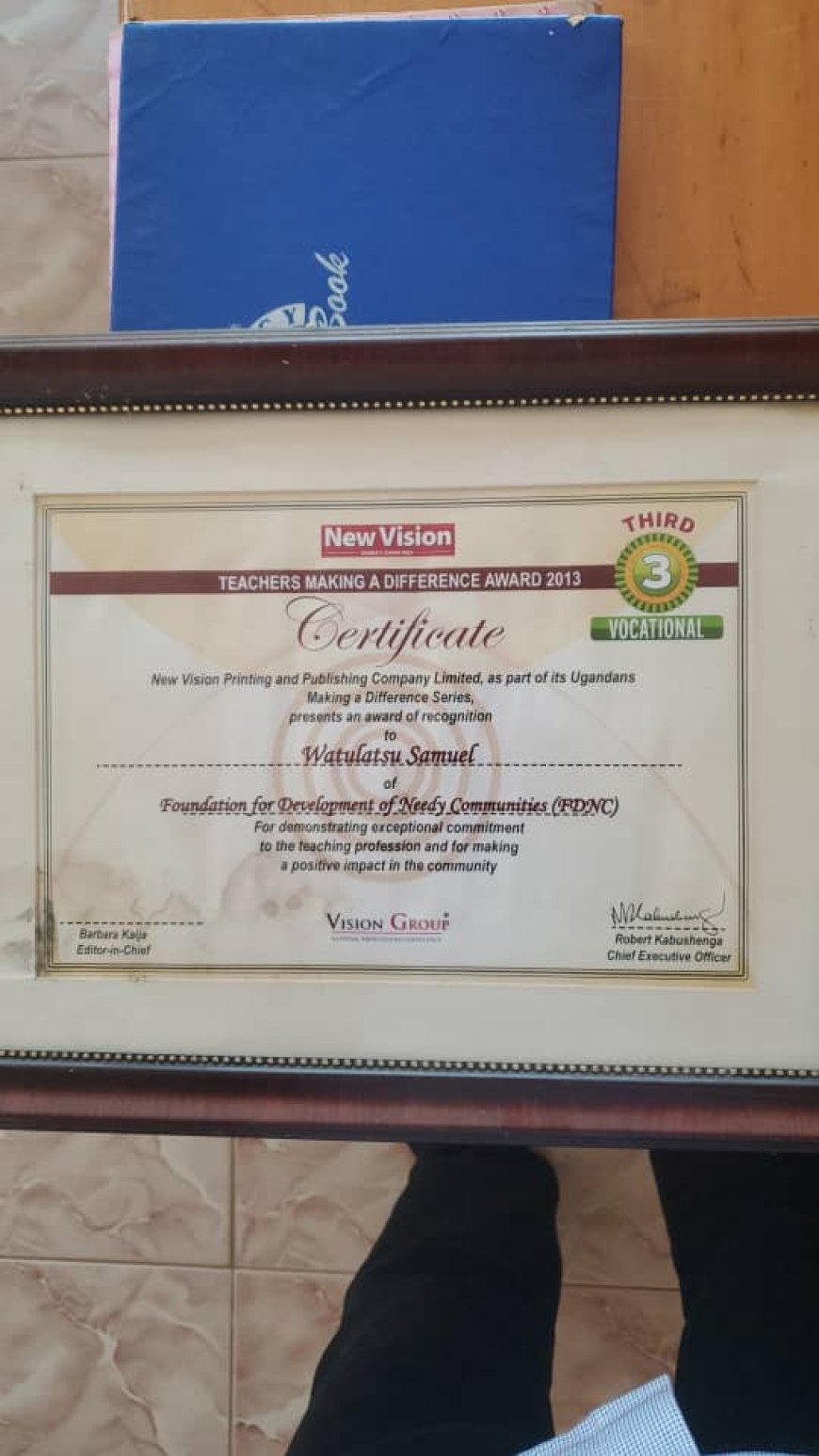
Endorsed as a local hero of development, Dr. Watulatsu's acknowledgement is part of Vision Group’s broader campaign to highlight individuals who are making exceptional contributions towards social and economic transformation within their communities. The endorsement is particularly meaningful because it originates from the grassroots—the very people who have felt the tangible impact of his efforts.
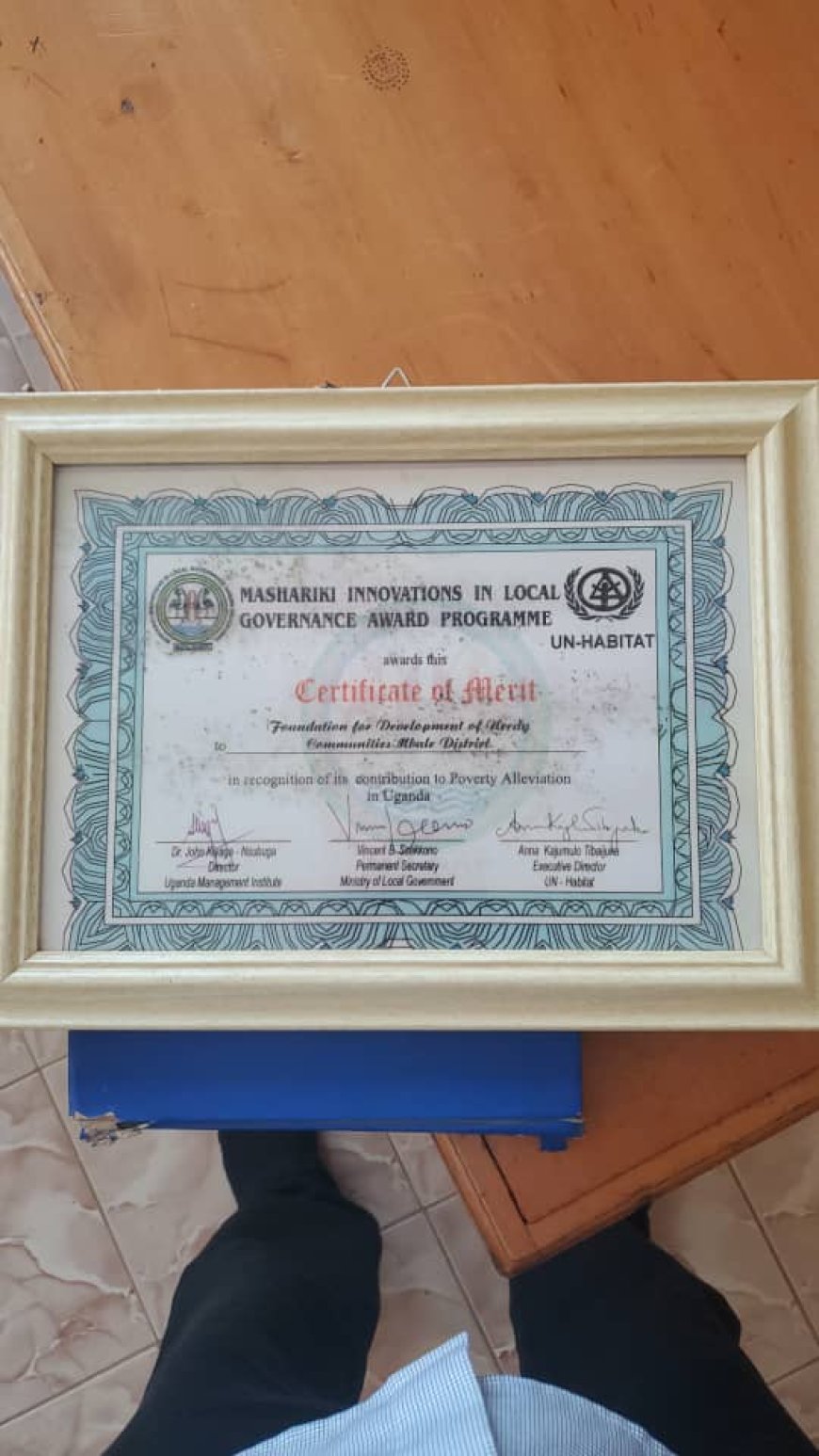
“It was humbling and at the same time motivating,” Dr. Watulatsu said in a statement. “This honour reinforces the importance of pressing on despite the daily challenges experienced while engaging society toward community and mindset transformation.”
Founded nearly three decades ago, FDNC has become a cornerstone of inclusive development in Eastern Uganda. With a mission to support underprivileged communities through skills training, education, health, and economic empowerment, the organisation under Dr. Watulatsu’s leadership has grown into a dynamic force for change.
From the vocational skilling of youth and persons with disabilities to enhancing school sanitation and girls’ retention programs, FDNC has touched the lives of thousands across the region. It also runs innovation hubs and business incubation programs aimed at nurturing local talent and entrepreneurs—giving young people the tools to become job creators rather than job seekers.
FDNC's innovative programming has attracted partnerships with national and international organisations, including support from the Ford Foundation—of which Dr. Watulatsu is a proud Ford Fellow. This global recognition has helped amplify the voice of local communities and draw attention to sustainable, people-centered development models.
Operating from the Bridges for Innovation Building on Aryada Street in Mbale City, FDNC embodies the belief that real development begins when communities are empowered to lead their own change. Watulatsu has emphasized participatory approaches throughout his work—ensuring that the beneficiaries of FDNC's programs are active agents in the process of transformation.
Beyond programs, FDNC is also a knowledge-sharing platform, offering insights and best practices on community development. Through its online platforms— www.fdncuganda.or.ug and www.krdp.org —the organisation showcases real-life success stories and tools for innovation-driven development.
Dr. Watulatsu’s recognition serves as a rallying point for community leaders, civil society actors, and development practitioners. It underscores the value of consistency, local ownership, and purpose-driven leadership in addressing the root causes of poverty, unemployment, and social marginalization.
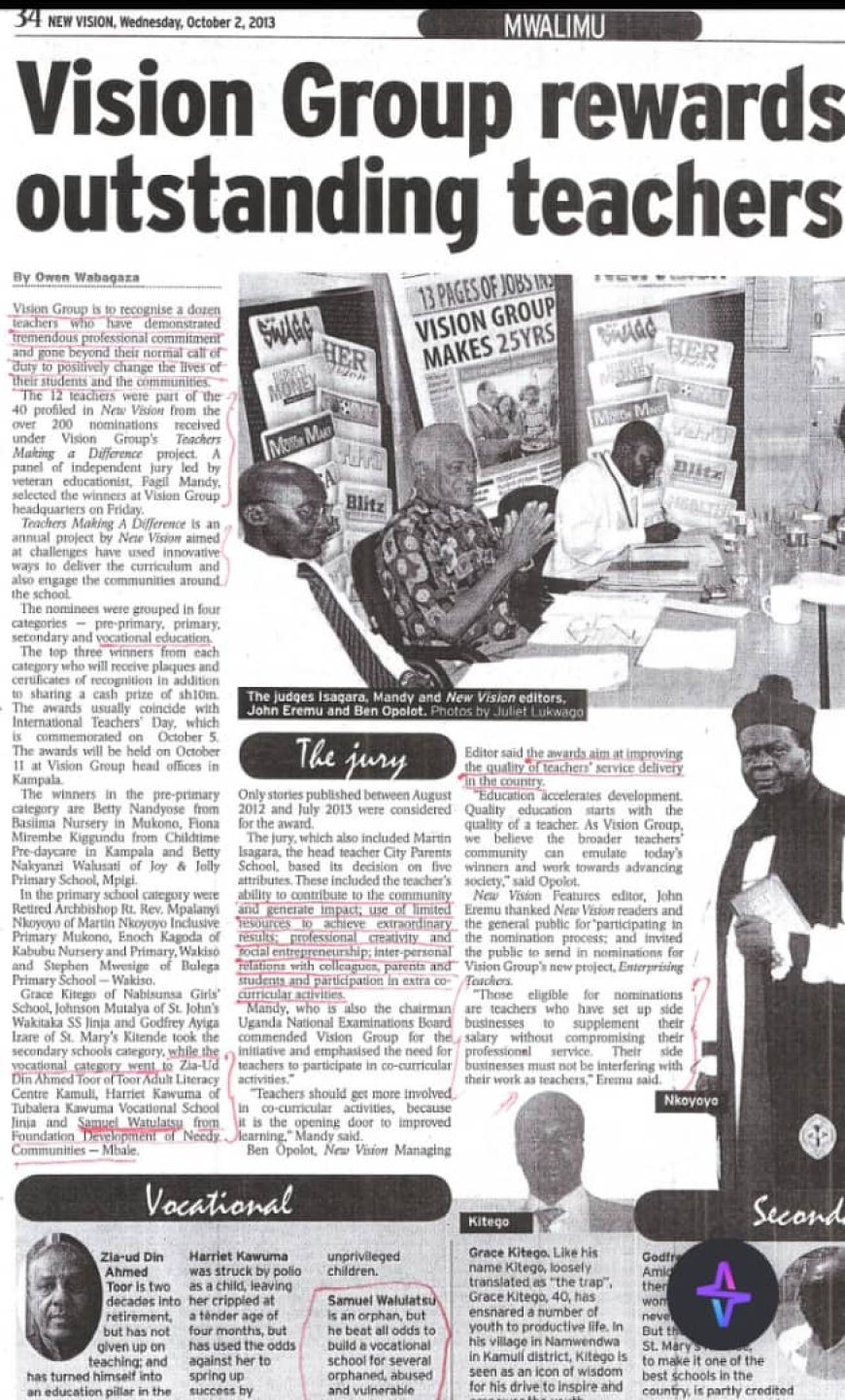
As Uganda works toward its Vision 2040 development goals, the example set by Dr. Watulatsu and FDNC demonstrates that transformative change is possible when communities are nurtured, empowered, and led by visionaries from within.
